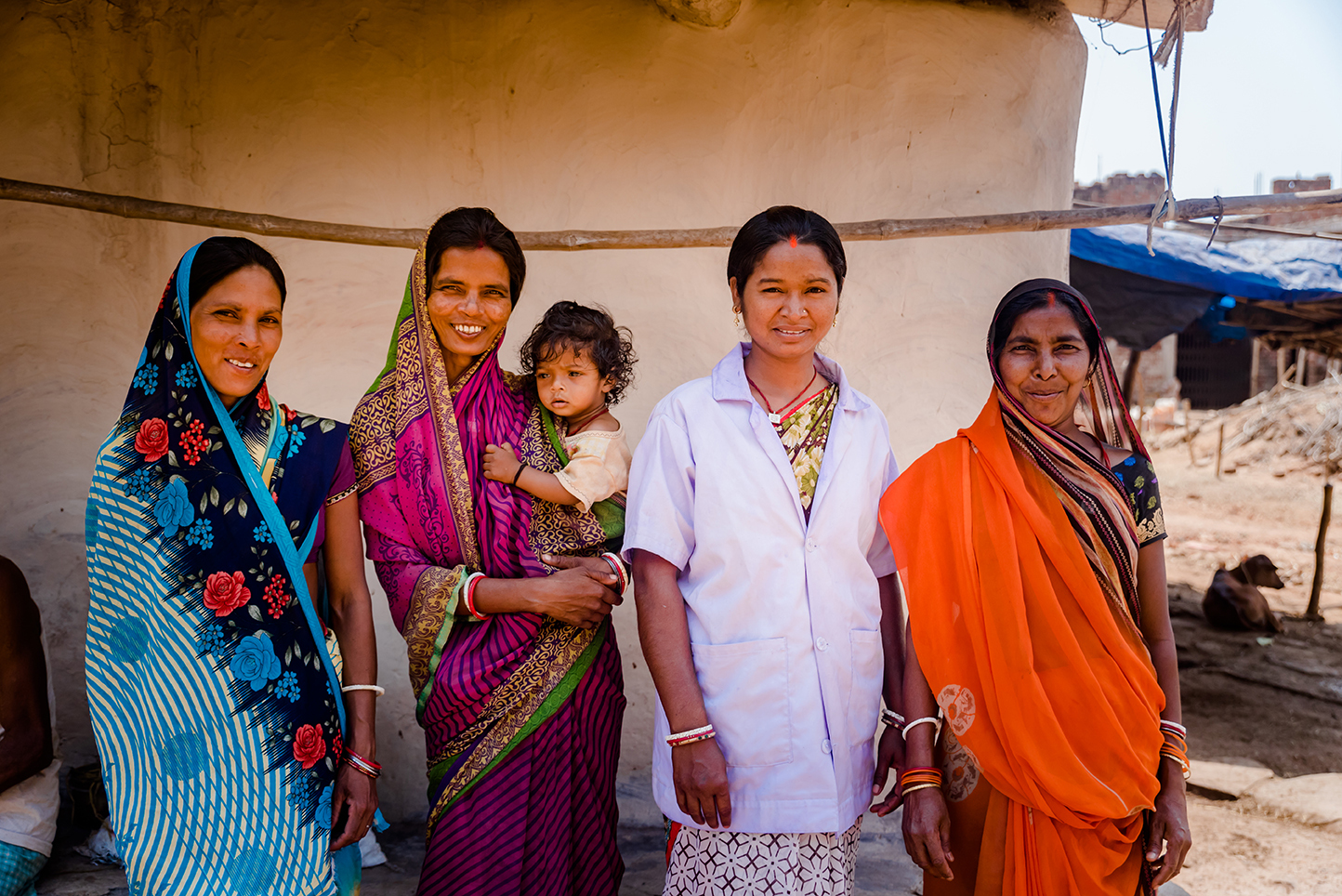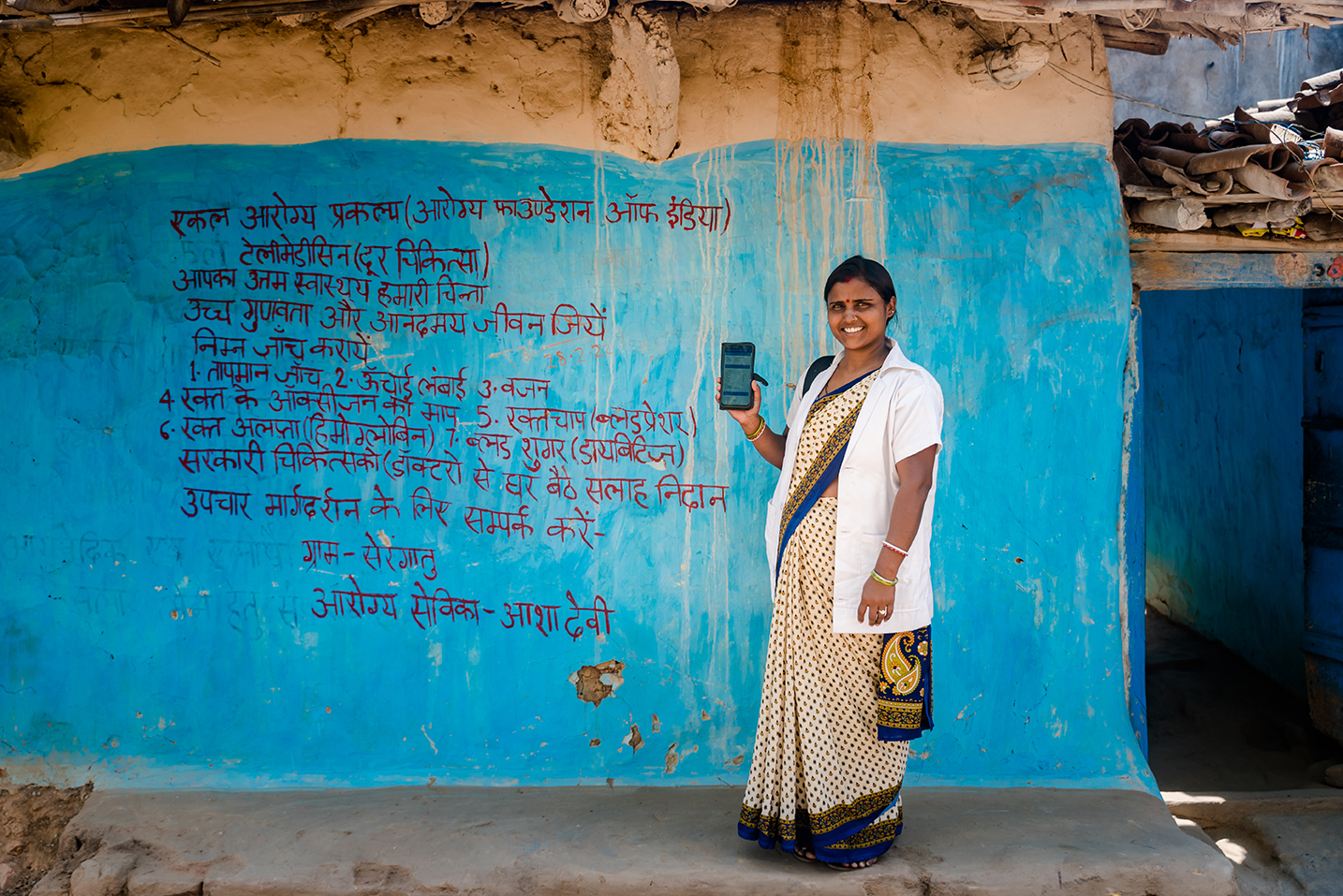The dusty lanes of the Vidarbha hinterland painted a stark picture and grim reality. Despite the economic and technological advances elsewhere, life is an everyday struggle for existence in this hinterland. Interaction with many panchayat members brought up the age old issues of education, healthcare and livelihood. For such rural communities healthcare availability hasn’t increased much and the affordability has worsened. A health issue could often wipe out the savings of many years and push the entire family towards poverty. This is true not just in Indian hinterland, but in any part of the world which is as deprived. While it is a huge effort to increase the healthcare infrastructure in the long term, small investments in the connecting the unconnected and focusing on the right interventions will go a long way. New innovations in Telemedicine are making it effective at very low cost and low bandwidth and will greatly help the field workers.

Here are a couple of success stories from such an innovative non-profit tech startup – Intelehealth. In remote Odisha, there was a patient with chronic symptoms of kidney stones. The local doctor had asked a huge sum the patient couldn’t afford. The patient comes to the health worker, who using the Intelehealth app initiates a diagnosis with the remote doctor. With the remote doctors advice and help, he gets a surgery arranged under RBSY (Govt. health insurance scheme) at a fraction of cost, thus saving the family from years of debt. A great example of right advice at the right time at the door step.
In another instance, Intelehealth field worker’s 16 year old son suffered on injury to his head that required a major surgery. She sold her jewelry and mortgaged her farm to pay for treatment. Post surgery, her son suffered from frequent seizures and couldn’t join school or work. Debt made it impossible for her to pay for travel and treatment at a city hospital. He was one of the first patients at the teleclinic and the doctor was able to prescribe medications to manage his seizures. He has now joined a job and lives a healthy life.
Intelehealth was part of the first Cisco CSR & N/Core Tech – incubator for non-profit startup cohort. Having toiled for long in this space, I found the approach was refreshingly intuitive. It was proven to work by Dr Soumyadipta Acharya, a doctor turned technologist at John Hopkins and his team. The essence is to take standard medical protocols, codify them into a mind map, which in turn becomes a comprehensive questionnaire which the health worker uses to collect information. The responses get uploaded and summarized to the remote doctor who could provide a diagnosis and a prescription or ask the health worker to collect more information. All this work flow is enabled by a software stack using open-source components where possible. As Dr Acharya says the intent is to provide scientific, evidence based, and dignified care. Partnering him is Neha Goel, doctoral student at John Hopkins, who believes every life is valuable and to lead a happy, healthy life is a basic human right. An entrepreneur, technologist and a social activist all rolled into one she likes to take challenges head on. Together they co-founded Intelehealth as a non-profit along with Amal Afroz Alam and Emily Eggert in June 2016.
When you want to do something good the Universe conspires with you. Fast forward to three years later Intelehealth has built the software stack, and looking to scale its operations in India, Syria, Philippines and has an awesome team that believes in the vision. I am glad and excited to join hands with them to reach the remote corners of the world. While capitalism is widening the divide between haves and have-nots, we shall make every effort to use technology to reduce that divide.
#Telemedicine #RuralHealth #HealthcareForAll #Intelehealth



